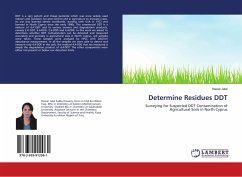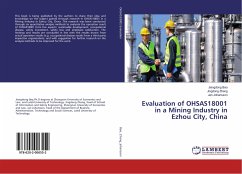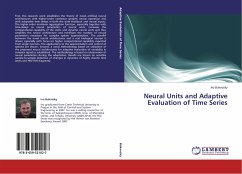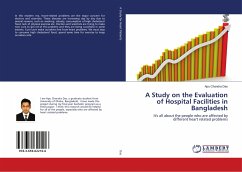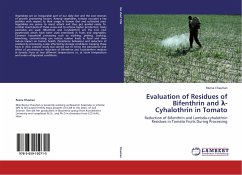
Evaluation of Residues of Bifenthrin and ¿-Cyhalothrin in Tomato
Reduction of Bifenthrin and Lambda-cyhalothrin Residues in Tomato Fruits During Processing
Versandkostenfrei!
Versandfertig in 6-10 Tagen
39,99 €
inkl. MwSt.

PAYBACK Punkte
20 °P sammeln!
Vegetables are an inseparable part of our daily diet and the vast reserves of growth promoting factors. Among vegetables, tomato occupies a key position with respect to their usage in human diet and cultivated area. Vegetables are prone to insect attack and thus get spoiled easily. To combat insect-pests of these crops and to achieve higher production, many pesticides are used. Bifenthrin and -cyhalothrin are the two new pyrethroids which have been used extensively in fruits and vegetables. Common household processing such as washing, peeling, cooking, blanching, concentrating can reduce resid...
Vegetables are an inseparable part of our daily diet and the vast reserves of growth promoting factors. Among vegetables, tomato occupies a key position with respect to their usage in human diet and cultivated area. Vegetables are prone to insect attack and thus get spoiled easily. To combat insect-pests of these crops and to achieve higher production, many pesticides are used. Bifenthrin and -cyhalothrin are the two new pyrethroids which have been used extensively in fruits and vegetables. Common household processing such as washing, peeling, cooking, blanching, concentrating can reduce residue levels in food and then reduce impact on human health. Persistence behaviour and reduction of residues by processing is also affected by storage conditions. Keeping these facts in view, present study was carried out to know the persistence and effect of processing on reduction of bifenthrin and -cyhalothrin residues in tomato fruits at two different temperatures i.e. at room temperature and under refrigerated conditions.



